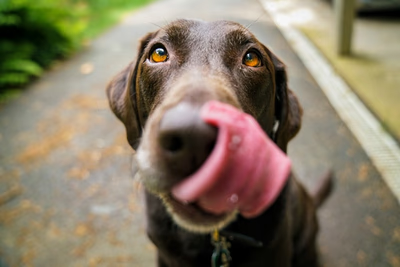Natural Foods Guide for Healthy Dogs
Why Choose Natural Foods for Your Dog?
Natural foods for dogs have become increasingly popular among responsible owners seeking to improve their pets’ health, energy, and overall well-being. Unlike processed foods, natural options provide fresh nutrients, promote better digestion, and strengthen the immune system.
Choosing natural food based on whole ingredients is a wonderful way to provide your dog with a balanced diet free from artificial additives.
Key Benefits of a Natural Diet
A diet rich in natural ingredients can offer multiple health benefits for your dog:
Healthier Digestion
Fresh and natural ingredients are easier to digest, which can help reduce stomach problems, gas, and loose stools.
Healthier Skin and Coat
Healthy fats and antioxidants present in natural foods promote hydrated skin and a shiny, silky coat.
Increased Energy and Vitality
A complete and nutritious diet provides the necessary energy for your dog to stay active and happy throughout the day.
Proper Weight Control
Natural foods, without fillers or sugars, help maintain your pet’s ideal weight, reducing the risk of obesity and associated diseases.
Recommended Natural Foods
Below, we present a list of healthy and safe natural foods you can incorporate into your dog’s daily diet:
Lean Proteins
- Cooked chicken without skin
- Turkey
- Lean beef
- Fish like salmon or sardines (boneless)
These proteins are essential for muscle development and immune system strengthening.
Safe Fruits and Vegetables
- Carrots: rich in beta-carotenes and fiber
- Apples (seedless): source of vitamin C and antioxidants
- Pumpkin: excellent for digestion
- Broccoli: rich in vitamins and low in calories
Always wash fruits and vegetables well and offer cooked versions when necessary to facilitate digestion.
Healthy Fats
- Coconut oil: improves metabolism and skin health
- Fish oil: rich in omega-3 fatty acids
- Chia or flax seeds: promote healthy digestion and are a source of fiber
Whole Grains
- Brown rice
- Cooked oats
- Quinoa
These carbohydrates provide sustainable energy and fiber, which helps regulate your dog’s digestive system.
Foods to Avoid
While many natural foods are beneficial, there are certain products that can be toxic to dogs:
- Chocolate
- Grapes and raisins
- Avocado
- Onion and garlic
- Macadamia nuts
- Alcohol and caffeine
When in doubt, always consult with a veterinarian before introducing a new food into your furry friend’s diet.
How to Start Natural Feeding for Your Dog
If you’re considering changing your dog’s diet toward more natural options, follow these tips for a safe transition:
- Consult with your veterinarian to ensure all nutritional needs are met.
- Introduce new foods gradually to avoid digestive disorders.
- Observe your dog’s reactions, such as energy levels, skin, coat, and behavior.
- Prepare everything with hygiene and care, avoiding excessive seasonings, salt, and oils.
Homemade Food or Commercial Natural Diets?
You can choose to prepare food at home or select commercial brands that offer natural foods specifically formulated for dogs. Both options can be healthy if proper nutritional balance is maintained.
Homemade Food
Ideal for owners who want to completely control ingredients, but requires nutritional knowledge and planning.
Commercial Natural Foods
Many brands offer recipes without preservatives, with fresh ingredients and veterinary supervision. Read labels carefully and choose trusted products.
Conclusion
Offering natural foods to your dog is a gift to their health and well-being. From lean proteins to safe fruits and vegetables, the options are many and delicious. With proper transition and veterinary supervision, you’ll see the benefits immediately: more energy, better digestion, and a healthier appearance.
Your dog deserves a nutritious, tasty, and natural diet. Start transforming their nutrition today and enjoy a happier and healthier life together.

